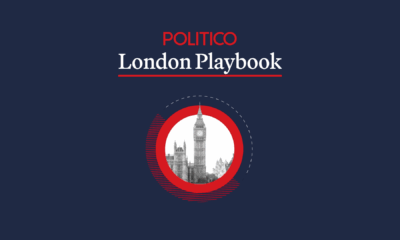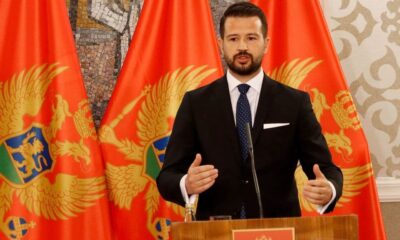Politics
2007 Constitution Reshapes Belonging in the Virgin Islands

The adoption of the 2007 Constitution in the Virgin Islands marked a pivotal moment in the Territory’s journey towards self-governance. While it was celebrated for its promise of maturity and autonomy, it also introduced a significant change that has since influenced family dynamics, identity, and future prospects. The Constitution established a distinction between those who are Belongers by birth and those who acquire the status through residence, marriage, or Cabinet approval, effectively preventing the latter group from automatically passing their rights to their children. This adjustment has evolved into a complex and emotional issue that continues to impact families across the Territory.
Historical Context of Belonging
Under the previous 1976 Constitution, the definition of belonging was closely tied to familial connections. This Constitution recognized the contributions of individuals through marriage, service, and community involvement. Many who helped build the Territory—whether they were nurses, teachers, builders, or hospitality workers—became Belongers based on these connections. Notably, Section 2(2) of the 1976 Constitution defined a Belonger as someone who could inherit that status through their parents.
In contrast, the 2007 Constitution preserved existing Belonger rights but altered the succession of those rights. As a result, children born to lawful Belongers outside the Virgin Islands are now considered outsiders by law. This change means that the automatic inheritance of status for these children, once a norm, is no longer guaranteed. Individuals who previously gained Belonger status through marriage or residency must now navigate an application process to secure their rights and those of their children, introducing a layer of uncertainty for many families.
Current Challenges and Implications
The barriers to belonging in the Virgin Islands extend beyond legal definitions; they also encompass financial challenges. Recently, immigration fees have increased significantly, making it more difficult for families to achieve Belonger status. This raises critical questions about whether belonging has become a privilege that must be purchased rather than a right earned through contribution and loyalty to the Territory.
Families uncertain about their children’s future rights are often hesitant to invest in their homes and businesses. The fear of exclusion can lead to a decline in local growth as confidence in the stability of belonging diminishes. Policies that were intended to protect heritage may inadvertently restrict the very progress that sustains that heritage.
Land ownership further complicates this issue. In the Virgin Islands, land signifies legacy and identity. When a Belonger’s child is not recognized as part of that lineage, the family’s connection to property becomes tenuous. A home built from years of effort and sacrifice may no longer easily transfer from parent to child, breaking a chain of inheritance that has historically reinforced community bonds.
Inclusion, when effectively managed, serves as a robust economic policy. It fosters a sense of belonging that encourages investment and community engagement. Conversely, exclusion drives away talent and resources, discouraging residents from participating in the Territory’s internal affairs, including elections.
As the Constitution undergoes another review, critical questions arise regarding the future of those who belong by grant. Will their rights and those of their children be viewed as lesser than those of Belongers by birth? The answers to these questions will influence the fairness of laws and the broader dialogue surrounding inclusion, economic continuity, and national identity.
Balancing the needs of indigenous Virgin Islanders with those of long-term residents is essential. Efforts to protect ancestral lands and heritage must coexist with initiatives that acknowledge the contributions of those who have built lives in the Virgin Islands. A balanced approach can help preserve rights for all while promoting a shared sense of purpose and belonging.
The path forward requires leadership capable of bridging divides and fostering unity between native and naturalized residents. This challenge is not solely about legal frameworks; it is about fairness, family, and future generations. The current divide in rights based on the mode of acquiring belonging must be addressed to ensure a cohesive community.
Ultimately, the Virgin Islands cannot thrive on exclusion and inequality. A strong community is built on an invested population that feels secure in its right to belong. This principle extends beyond social fairness to encompass economic strength and community growth. The spirit that united residents during the recovery from the devastating impacts of Hurricanes Irma and Maria must guide future actions. Togetherness—rooted in shared love for the Territory—defines true belonging.
As the Territory reflects on its Constitution, it has an opportunity to affirm its values by recognizing the lineage of Belongers by grant and ensuring that their contributions are valued as part of the collective identity of the Virgin Islands. A strong future for the Territory requires a commitment to inclusion that acknowledges the diverse paths to belonging, fostering unity rather than division.
-

 Entertainment1 month ago
Entertainment1 month agoAnn Ming Reflects on ITV’s ‘I Fought the Law’ Drama
-

 Entertainment2 months ago
Entertainment2 months agoKate Garraway Sells £2 Million Home Amid Financial Struggles
-

 Health1 month ago
Health1 month agoKatie Price Faces New Health Concerns After Cancer Symptoms Resurface
-

 Entertainment1 month ago
Entertainment1 month agoWhere is Tinder Swindler Simon Leviev? Latest Updates Revealed
-

 Entertainment2 months ago
Entertainment2 months agoKim Cattrall Posts Cryptic Message After HBO’s Sequel Cancellation
-

 Entertainment1 month ago
Entertainment1 month agoCoronation Street’s Carl Webster Faces Trouble with New Affairs
-

 Entertainment2 months ago
Entertainment2 months agoMasterChef Faces Turmoil as Tom Kerridge Withdraws from Hosting Role
-

 Entertainment3 months ago
Entertainment3 months agoSpeculation Surrounds Home and Away as Cast Departures Mount
-

 World1 month ago
World1 month agoCole Palmer’s Mysterious Message to Kobbie Mainoo Sparks Speculation
-

 Entertainment1 month ago
Entertainment1 month agoITV’s I Fought the Law: Unraveling the True Story Behind the Drama
-

 Entertainment4 weeks ago
Entertainment4 weeks agoCaz Crowned Winner of The Great British Sewing Bee, Overjoyed by Triumph
-

 Entertainment2 months ago
Entertainment2 months agoAldi Launches Cozy Autumn Fragrance Range Ahead of Halloween















